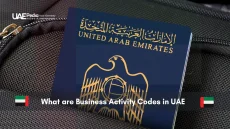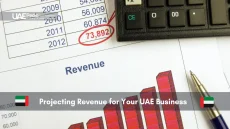What if the secret to thriving in the Gulf’s bustling job market isn’t just salary—but how companies support their teams beyond paychecks? In a region where 85% of professionals prioritize workplace perks alongside income, understanding local standards becomes essential.
UAE labor regulations, under Federal Decree-Law No. 33 of 2021 and its amendments, guarantee core protections for employees, including annual leave and end-of-service benefits.. Whether you’re drafting policies or negotiating a contract, knowing these foundations helps navigate everything from sick days to parental leave. But here’s the twist: top employers often layer extras like flexible hours or wellness programs atop these basics to stand out.
We’ll unpack both the must-haves and the nice-to-haves. You’ll discover how balancing legal requirements with creative incentives can boost retention without breaking budgets. Let’s explore what makes the Emirates’ approach unique—and how to apply these insights wherever you work.
- Core protections under UAE law apply to most workers, regardless of nationality
- Supplemental perks differentiate companies in talent-driven industries
- Strategic benefit design balances compliance costs with team satisfaction
Comprehensive Overview of UAE Employee Benefits in 2025
Ever wonder why some teams in Dubai’s glittering towers stay loyal for years while others jump ship after six months? The answer often lies in what’s offered beyond the paycheck. With 68% of professionals in the Emirates saying perks influence career decisions, crafting standout packages isn’t optional—it’s survival.
The Importance of a Competitive Benefits Package
Think of it like a souq negotiation: top talent weighs salary against extras. One tech firm in DIFC slashed turnover by 40% simply adding remote Fridays and school fee allowances. “Today’s workforce wants flexibility as much as financial security,” notes a local HR director we interviewed.
Jurisdictions matter too. Free zones such as ADGM require 25 days of annual leave, exceeding the federal minimum of 22 days. This creates a patchwork where companies in certain areas must offer richer deals to compete.
UAE Labor Regulations and Recent Amendments
Federal Decree-Law No. 33 of 2021 outlines the foundational employee rights in the UAE:
- 30 days of paid annual leave (after probation)
- Overtime pay at 125% of the regular hourly rate, with a cap of 96 hours per month as per 2025 amendments
- End-of-service gratuity starting at 21 days’ salary
But here’s the twist: public holiday pay varies between emirates. Sharjah grants extra days for cultural festivals, while Abu Dhabi aligns closer to federal minimums. Expats often negotiate housing allowances into contracts—a perk rarely extended to locals already receiving government support.
Forward-thinking employers enhance basic benefits with additional perks such as gym memberships, profit-sharing schemes, and mental health support programs. As one CFO told us: “We budget 18% of payroll for benefits. It keeps our stars from becoming someone else’s constellations.”
“read more: Working Hours Regulations UAE Labor Law Guide“
Essential Employee Benefits Mandated by UAE Law
Picture this: you’re navigating Dubai’s golden dunes with a trusty camel—local labor laws are your shaded oasis. Federal regulations ensure basic protections that apply whether you’re crunching numbers in DIFC or teaching in Sharjah. Let’s unpack what’s guaranteed under the sun.
Under UAE labor law, end-of-service gratuity for expatriate workers is calculated based on the last drawn basic salary, excluding allowances such as housing or transport. Ref.: “End of Service Benefits for Workers in the Private Sector.” UAE Government Portal. [!]
Time Off When Life Happens
The law guarantees 30 days of paid vacation yearly after probation—enough for a European summer escape or multiple staycations. Need sick days? First 15 are fully paid, next 30 at half salary. One logistics company found this tiered approach reduced absenteeism by 22% while supporting genuine needs.
New parents get breathing room too:
- 60 days maternity leave (45 days full pay + 15 days at half pay), with provisions for extended leave in case of complications
- 5 days paid parental leave for fathers, to be taken within six months of the child’s birth
- Extended coverage if complications arise
The Golden Handshake
After years of service, workers receive an end-of-service bonus calculated like this:
| Service Duration | Gratuity Formula | Example (AED 10k Salary) |
|---|---|---|
| 1-5 years | 21 days/year | AED 10,000 × (21/30) = AED 7,000 |
| 5+ years | 30 days/year | AED 10,000 × (30/30) = AED 10,000 |
Emiratis contribute 20% to pension funds (split between employer and employee), while expats receive gratuity instead. Abu Dhabi recently aligned its calculations with federal standards, though DIFC still uses basic salary rather than total compensation for calculations.
“Missing these requirements isn’t just risky—it’s career suicide for HR managers,” warns legal advisor Fatima Al-Mansoori. Compliance builds trust, and trust keeps talent from wandering into competitors’ tents.
Enhancing Employee Packages with Additional Perks
Imagine walking into a job interview where the recruiter slides a menu of perks across the table—like choosing dessert after a satisfying meal. That’s the power of optional benefits in today’s talent race. While federal rules cover essentials, forward-thinking organizations now sweeten deals with extras that make teams feel valued beyond their desk hours.
Enhanced Health Insurance and Wellness Programs
A Dubai tech startup saw 31% fewer sick days after upgrading to premium medical plans covering mental health services and gym memberships. “Healthy teams build healthy profits,” their CEO remarked. Compare that to basic coverage:
| Feature | Standard Plan | Enhanced Option |
|---|---|---|
| Dental Coverage | Emergency only | Full orthodontics |
| Mental Health | 3 sessions/year | Unlimited therapy |
| Preventive Care | Basic checkups | Annual wellness retreats |
Relocation Packages and Flexible Working Arrangements
When Abu Dhabi’s oil giants compete for global engineers, they don’t just offer housing allowances—they handle visa processing, school placements, and even pet relocation. One finance firm introduced “work from anywhere” Wednesdays, resulting in 27% higher project completion rates.
Consider these popular add-ons:
- 4-day workweeks during summer months
- Education stipends for upskilling
- Profit-sharing tied to company performance
“Our hybrid policy isn’t about where you work—it’s about how you thrive,” says an HR manager at a leading logistics company. Their retention rates jumped 18% after letting staff design their schedules.
Navigating Legal Compliance in UAE Employment Practices
Imagine drafting a contract only to find the rules changed overnight—welcome to the ever-evolving world of UAE labor compliance. Since 2022, amendments have reshaped everything from pensions to parental leave, creating both opportunities and pitfalls for organizations.
Companies operating within UAE free zones, such as DIFC and ADGM, must navigate distinct employment regulations, which may differ significantly from federal labor laws, necessitating specialized compliance strategies. Ref.: “Employment Law in the DIFC: Leave Entitlements.” Hossam Zakaria. [!]
Understanding Recent UAE Labor Law Amendments
As of 2025, key updates mandate employers to:
| Area | Previous Rule | 2023 Update |
|---|---|---|
| Pension Contributions | 15% for Emiratis | 18% (split 11% employer, 7% employee) |
| Parental Leave | No federal paternity leave | 5 paid days for fathers |
| Overtime Limits | 144 hours/month | 96 hours/month cap |
These changes ripple through benefit packages. Enhanced parental policies now compete with regional standards, while overtime caps force smarter workforce planning. As legal advisor Ahmed Al-Marzouqi notes: “Companies using outdated templates risk fines up to AED 500,000—it’s like driving with last year’s expired license.”
Navigating Jurisdictional Variations and Exemptions
Free zones dance to different drumbeats. DIFC’s 2023 guidelines provide 30 days of paid bereavement leave, significantly more than the federal provision. Meanwhile, ADGM requires employers to fund international school fees for expat staff’s children through grade 12.
Three compliance must-dos for 2025:
- Update employment contracts by Q1 to reflect new leave entitlements
- Audit insurance policies against UAE employment law guide standards
- Train HR teams on jurisdiction-specific thresholds
One Dubai logistics firm learned this the hard way—their DIFC branch faced penalties for applying federal overtime rules instead of free zone limits. Staying current isn’t just wise; it’s the price of playing in the Gulf’s competitive sandbox.
Effective Strategies for Diverse Workforce Benefit Management
Juggling a Rubik’s Cube of team needs? Modern workforces mix Gen Z remote coders with onsite baby boomers—each expecting different perks. A Dubai logistics company cracked this by surveying staff priorities first. Turns out, 63% valued flexible hours over gym memberships. Start here:
Aligning Budget with Employee Needs
Map your spend like a treasure hunt. One Abu Dhabi firm reallocated 15% of their training budget to childcare subsidies—retention soared 34%. Try this framework:
| Traditional Approach | Smart Budgeting |
|---|---|
| One-size-fits-all health plans | Tiered options (basic/premium) |
| Fixed office hours | Core hours + flex time zones |
| Annual leave quotas | Swap days for sabbaticals |
Tech tools change the game. Automated leave trackers prevent coverage gaps, while AI-driven surveys spot trending needs. “Our payroll system flags when benefit costs hit 19% of salary—we adjust before it burns cash,” shares an HR director at a Sharjah tech startup.
Three pro moves:
- Partner with EOR services for compliance-heavy regions
- Bundle discounts with local businesses (think Dubai Metro passes)
- Review packages quarterly—demographics shift faster than desert sands
“Treat benefits like a live playlist, not a vinyl record. What worked pre-pandemic might now sound off-key.”
Crafting Comprehensive Compensation Packages in the UAE
Building a standout rewards system is like constructing a desert villa—strong foundations meet stylish interiors. Start with legally required protections, then layer extras that reflect your team’s heartbeat. A Dubai media company nailed this by pairing federal leave policies with Friday brunch credits and mindfulness apps.
Integrating Standard and Supplemental Benefits
Think of mandatory offerings as your recipe’s base ingredients—essential but bland alone. Spice things up by blending overtime pay with performance bonuses. One logistics firm boosted morale by calculating end-of-service gratuity using total earnings (basic salary + commissions) instead of minimum requirements.
Try this mix-and-match approach:
- Anchor with 30-day annual leave + add “flexi Fridays” for remote work
- Meet health insurance mandates + offer dental upgrades at cost-sharing rates
- Automate gratuity calculations + create profit-sharing pools for top performers
“read also: Annual Leave Entitlement UAE Calculation Methods“
Balancing Cost, Compliance, and Satisfaction
A Sharjah startup saved 12% on payroll by surveying staff preferences first. Turns out, younger teams valued learning stipends over extra vacation days. Their secret sauce? Quarterly “benefit hackathons” where teams pitch perk ideas within set budgets.
Smart budgeting looks like this:
| Cost Saver | Value Booster |
|---|---|
| Negotiate group insurance rates | Add free coffee subscriptions |
| Use free zone compliance templates | Offer metro pass discounts |
“We treat compensation packages like our office majlis—constantly refreshed to welcome new voices,” shares an HR lead at an Abu Dhabi fintech. Their turnover dropped 19% after letting staff swap unused leave for charity donations.
Three steps to start tomorrow:
- Audit current spend against industry benchmarks
- Run pulse surveys identifying top desired perks
- Partner with payroll platforms that auto-update for law changes
Remember: Great packages aren’t built in a day. They evolve through listening, testing, and celebrating what makes your team uniquely thrive under the Emirates’ golden sun.
Read More:
Concluding Insights on Effective Employee Benefit Strategies
Creating standout workplace support in the Emirates isn’t about checklists—it’s a dance between compliance and creativity. Think of labor rules as your rhythm section: they keep you grounded with guaranteed leave, insurance safeguards, and gratuity calculations. But the real magic happens when you layer in unique beats—flexible hours that sync with school runs or wellness programs that fuel both bodies and morale.
Staying current matters more than ever. With 14 public holidays in 2025, smart teams design packages that let staff maximize downtime while meeting business needs. One Abu Dhabi firm boosted productivity 19% by letting employees swap unused leave for charity donations—proof that thoughtful policies pay dividends.
Effective benefits management in the UAE requires quarterly audits to align with evolving labor laws and employee expectations, ensuring both compliance and workforce satisfaction. Ref.: “Employee Benefits UAE: Standard and Additional Options.” UAEpedia. [!]
Three keys for 2025:
- Conduct quarterly audits of benefits packages to ensure compliance with evolving labor laws.
- Blend must-haves (like maternity coverage) with culture-builders (think team retreats)
- Partner with local experts to navigate free zone nuances
The best strategies mirror a thriving souq—bustling with options, adaptable to trends, and built on trust. Whether you’re refining existing plans or starting fresh, remember: teams thrive when they feel heard, protected, and valued beyond their output. Ready to craft your blueprint?
Federal law requires 30 days of annual leave, 90 days of sick leave (with pay tiers), 45-60 days of maternity leave, end-of-service gratuity (21-30 days’ salary per year), and health insurance (mandatory in Abu Dhabi/Dubai). Overtime pay kicks in beyond 48 weekly hours.
New mothers get 45 days at full pay + 15 days at half pay, with up to 60 continuous days if medically necessary. Employers can’t terminate during pregnancy or maternity leave – and breastfeeding breaks are guaranteed post-return.
Yes – during the first 3-6 months of employment, the first 15 sick days are unpaid. After probation, workers receive full pay for the initial 15 days, half pay for the next 30 days, and zero pay for remaining days up to 90 annually.
For each year served: 21 days’ salary for the first 5 years, 30 days’ thereafter. Total = (basic salary ÷ 30) × multiplier × years of service. Those terminated for cause forfeit this benefit.
Relocation packages (flight allowances, housing stipends), gym memberships, tuition reimbursement, remote work options, and performance bonuses rank high. Some firms offer “happiness leave” or four-day workweeks as differentiators.
Key updates include flexible part-time/remote work models, extended maternity/paternity leave options, stricter anti-discrimination protections, and expanded bereavement leave for immediate family members.
Slightly – for example, DIFC and ADGM have shorter probation caps (6 months vs. unlimited elsewhere) and calculate gratuity based on total salary vs. basic wage in mainland firms. Always check jurisdiction-specific rules.
Currently mandatory only in Abu Dhabi (for all employees) and Dubai (for those earning ≤AED 4,000 monthly). Many employers enhance coverage with dental, mental health, or international treatment options as competitive perks.
Emiratis in private sectors require AED 4,000+ monthly (AED 3,000 salary + AED 1,000 housing). No federal minimum exists for expats, but skilled labor visas demand ≥AED 3,000-4,000 salaries depending on emirate.
Tailor packages through surveys – some prioritize school fees, others want extended home leave. Use tiered plans (basic vs. premium options) and cultural awareness training. Always maintain Sharia-compliant financial products as an option.



















